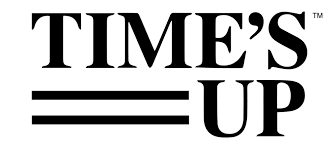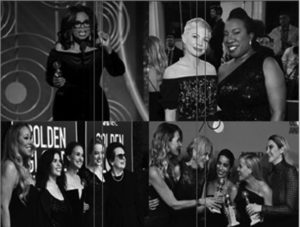Women in Hollywood Stand Up for Equality


by Riley Whelan ‘18
Women have been fighting for their rights for a long time now, not asking for superiority, but simply equality. The struggle for fair treatment of women in Hollywood dates back to the 1950s or even earlier, but after news of the Harvey Weinstein scandal broke, women in the industry took action, refusing to back down.
Weinstein, a big-name producer in Hollywood, was reported to have been sexually assaulting and harassing a large number of women he had worked with over the years. The first few allegations made about Weinstein were from celebrities like Ashley Judd, and afterwards, countless other women came forward saying that they too were harassed by him. All across Twitter and other social media platforms, women shared their stories and showed their support with the hashtag “MeToo.”
The #MeToo movement inspired hundreds of thousands of women to come forward and share their stories. Within 24 hours of the first tweet, over half a million people tweeted “#MeToo,” sharing their experience and further spreading the movement. More stories about other men, whether it be in the world of sports or entertainment, began to surface, and the movement grew. The events of the past six months have come full circle during the Hollywood award season, starting with the Golden Globes on January 7 and set to conclude with the Oscars on March 4.
Along with the #MeToo movement, actresses and actors set a fire under the “Time’s Up” movement at the Golden Globes last month. The women agreed to wear all black as a statement against the mistreatment of women in the industry, and some of the men joined in as well with “Time’s Up” pins on their suits. Michelle Williams and Laura Dern, among others, brought along activists such as Tarana Burke, the founder of #MeToo, and Mónica Ramírez, who organizes against sexual assault in rural areas, as their dates in order to further publicize their messages. The “blackout” at the Globes was successful in shedding a brighter light on the unequal treatment of women inside and outside of Hollywood.
Not only are there the issues of a lack of respect towards women resulting in sexual harassment and other misconduct, there also stands the issue of unequal acknowledgement and pay. Patty Jenkins, the director of “Wonder Woman,” had one of the most successful films of the year, yet received no nominations for her film’s success at some of the big-name award shows. At the Globes, actress Natalie Portman remarked “here are all the male nominees,” for best director. The comment made waves in the media world.
The unequal acknowledgment of a woman’s work carries into payment as well. One highly publicized controversy was that during the reshoots of the upcoming film “All the Money in the World,” actress Michelle Williams received less than 1 percent of the earnings of her co-star Mark Wahlberg. In response to the pay disparity, Wahlberg donated $1.5 million to the Time’s Up Fund in hopes of enacting change.
The issue of unfair pay has made its way into TV as well with “Grey’s Anatomy” star Ellen Pompeo recently becoming the highest paid TV actress, making around $575,000 per episode. She has been on the show for 14 seasons and has just now decided to ask for more money. As a women in the industry, she noted that men go into negotiations “hard and ask for the world,” and women should be doing the same.